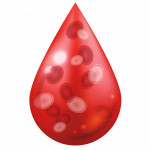Most people with chronic hepatitis C (six months or more after HCV infection) have few or symptoms of liver disease, meaning they don’t feel or look sick. If signs or symptoms are present during early stages, they are typically mild and tend to come and go. These may include fatigue, “brain fog,” pain in the upper-right portion of the abdomen, nausea, decreased appetite and muscle or joint pain. Some people, however, have more severe symptoms. People at any stage of hepatitis C can have elevated ALT and other liver enzymes.
Over time, as the disease progresses, HCV can cause serious liver damage, including fibrosis (accumulation of scar tissue) and cirrhosis (advanced scarring). Compensated cirrhosis means the liver generally still works. Decompensated cirrhosis, or liver failure, occurs when the liver can no longer carry out its viral functions.
Managing Common Symptoms
Fatigue is one of the most common symptoms of hepatitis C. Fatigue has many causes, so be sure to rule out other conditions such as depression, insomnia, pain, sleep apnea and thyroid problems.
- Try to get enough sleep. The National Sleep Foundation recommends seven to nine hours of sleep per night for most adults.
- Exercise is a good remedy for fatigue. Even light physical activity can make a difference. Pick an activity you enjoy and can do regularly, for example, walking, biking, swimming, dancing, gardening, yoga or tai chi. If you’re just starting out, aim for 10 or 15 minutes a day and increase gradually.
- Vary your activities over the course of the day. If possible, avoid long periods of sitting.
- Drink plenty of water. According to the Institute of Medicine, men need about 13 cups (3 liters) per day, and women need about 9 cups (2.2 liters). If you’re drinking enough liquids, your urine will be pale yellow or colorless.
- Reduce stress and find ways to relax.
- Take short naps, if needed, but don’t nap close to bedtime.
- Use caffeine in moderation. Coffee and tea may give you a lift, and they contain compounds that may protect the liver. But don’t drink caffeinated beverages too late in the day, as this may interfere with sleep.
Brain fog is a term for reduced alertness, difficulty concentrating or thinking and minor memory problems. Not everyone with hepatitis C develops brain fog, and those who do have a wide range of experiences. Talk to your medical provider and rule out other causes of impaired cognitive function.
- Engage in physical activity on a daily basis. An ideal goal is to include aerobic exercise, strength training and stretching.
- Get enough sleep. The average adult needs around seven to nine hours of sleep each night.
- Eat a nutritional diet and don’t skip meals. Aim for a good balance of the basic food groups, including whole grains, lean protein and fruits and vegetables.
- Manage stress. Meditation and relaxation techniques may help you think more clearly.
- Avoid or reduce your use of alcohol and drugs, which can interfere with clear thinking.
- Create habits and daily routines.
- Use electronic devices to manage your schedule and medication use, and record important events in a calendar or journal.
- Do one task at a time. Multitasking tends to increase brain fog.
- Eat smaller, more frequent meals or nutritious snacks such nuts, avocados or protein shakes and smoothies.
- Select a variety of foods, varying the color, temperature and texture.
- Ginger, peppermint or chamomile can help alleviate nausea.
- Acupressure applied to the inner wrist may also relieve nausea.
- If you are losing more weight than you want, choose nutritious foods that are high in calories and protein.
Muscle and joint aches are common symptoms of hepatitis C, although severe pain is not. In either case, seek medical evaluation.
- Moderate exercise and staying active is one of the best way to manage physical discomfort.
- If posisble, avoid prolonged sitting or reclining.
- Hot baths can sooth aching muscles.
- Stretching throughout the day and before more strenous activity can relieve pain and prevent injury.
- Massage or acupuncture can reduce pain and relieve stress.
- Talk to your doctor about over-the-counter pain relievers or, if needed, stronger prescription medications.
If you have symptoms related to advanced cirrhosis, your health care providers will discuss a plan for management or treatment. Do not attempt to manage serious symptoms on your own.







Comments
Comments